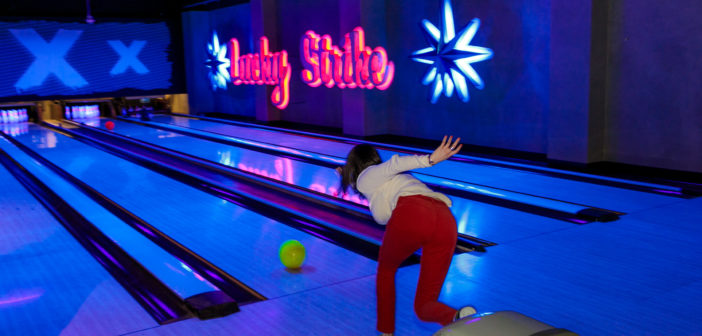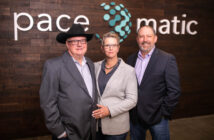Innovators in Entertainment
Lucky Strike a Pioneer in Boutique Bowling and a Brand Built on Fun
by Matt Harding
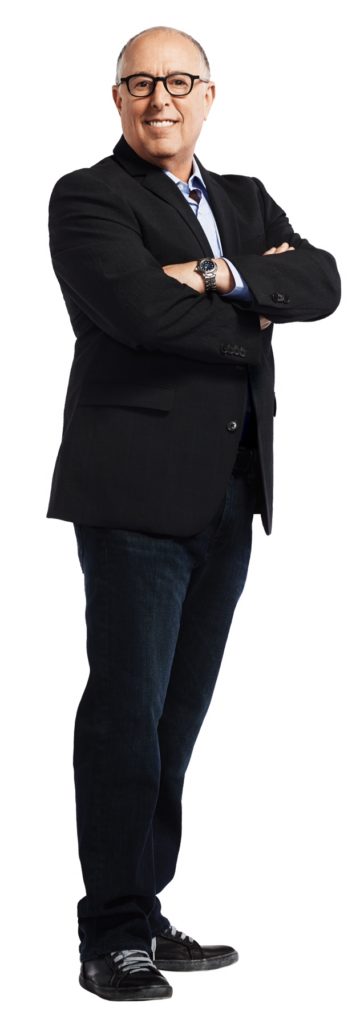
Steven Foster, founder of Lucky Strike, has a long history of introducing unique entertainment concepts.
First with roller skating and then billiards, Steven and Gillian Foster are no strangers to introducing the industry to unique entertainment concepts. They continue to put their spin on things today with Lucky Strike, the energetic boutique bowling venue founded in 2003.
In the late 1970s, they opened a roller skating rink called Spinoff in Boston right behind historic Fenway Park. Steven Foster told RePlay he quit practicing law to open the business and his partner thought he was out of his mind. He’d previously been living in Manhattan and said he had the idea in Central Park: “What if we took roller skating indoors?”
It was quite the unproven concept at the time. “Roller disco did not exist before that,” Foster said. “That’s where we fell in love with creating a space where people could be entertained.”
Spinoff made roller skating a social endeavor and copycats quickly sprouted up and the roller disco trend exploded during the late ’70s and early ’80s (much like the video game boom).
As that trend waned, the Fosters and business partner Kevin Troy (also a founder of Lucky Strike) opened Jillian’s in 1988. That was an upscale billiards operation that also launched in Boston. It turned the male-centric pool hall idea into an environment for all. Jillian’s became a social hub that had 40 locations in 20 states at its peak.
By 2002, the Fosters had moved to Los Angeles. “We’ve done roller skating and we’ve done billiards,” Foster said he thought at the time. “What’s the next reinvention in interactive food and beverage venues?”
The answer was bowling.
“Bowling had been league-centric and competition based,” he explained. “We thought bowling is really fun. It’s a great experience. No one had really done it in a hospitality-oriented way.”
At the time, he’d been working with Seventeen magazine on a teenage nightclub in Hollywood. When a space became available in the same building, they jumped at the chance to build what would soon become Lucky Strike.
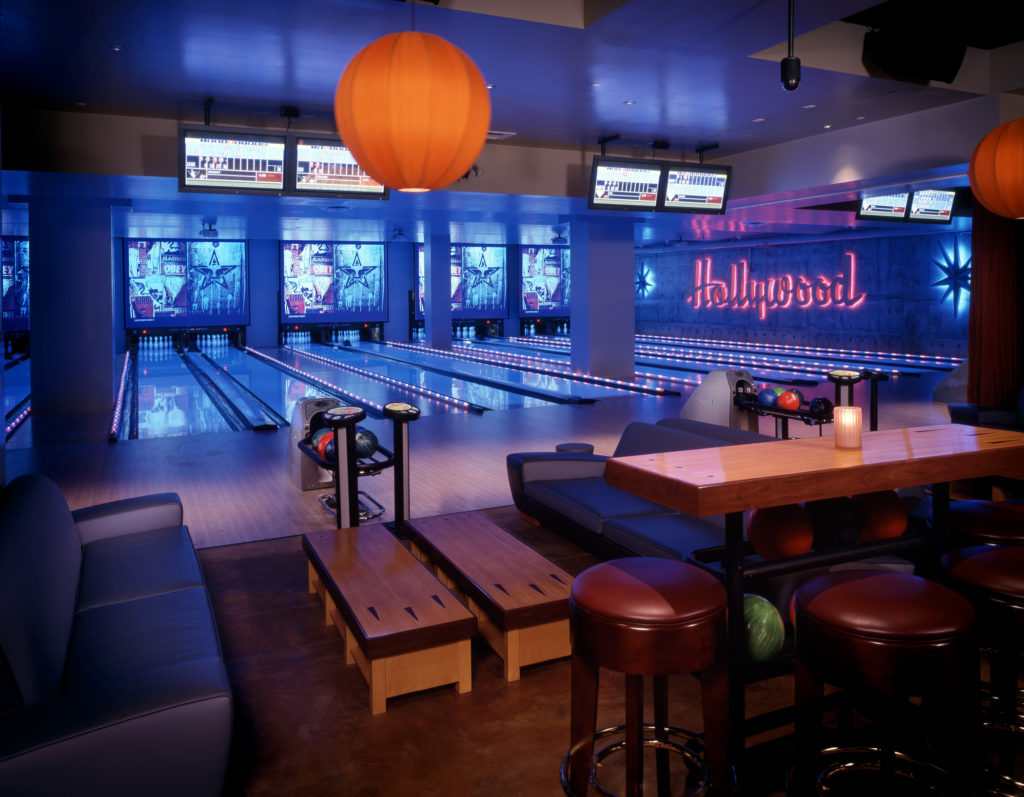
The Dude abides! Cult classic film The Big Lebowski is embedded into the origins of Lucky Strike (literally, considering lane seven was taken out of the former Hollywood Star Lanes where the movie was filmed and repurposed as the bar at Lucky Strike’s first location).
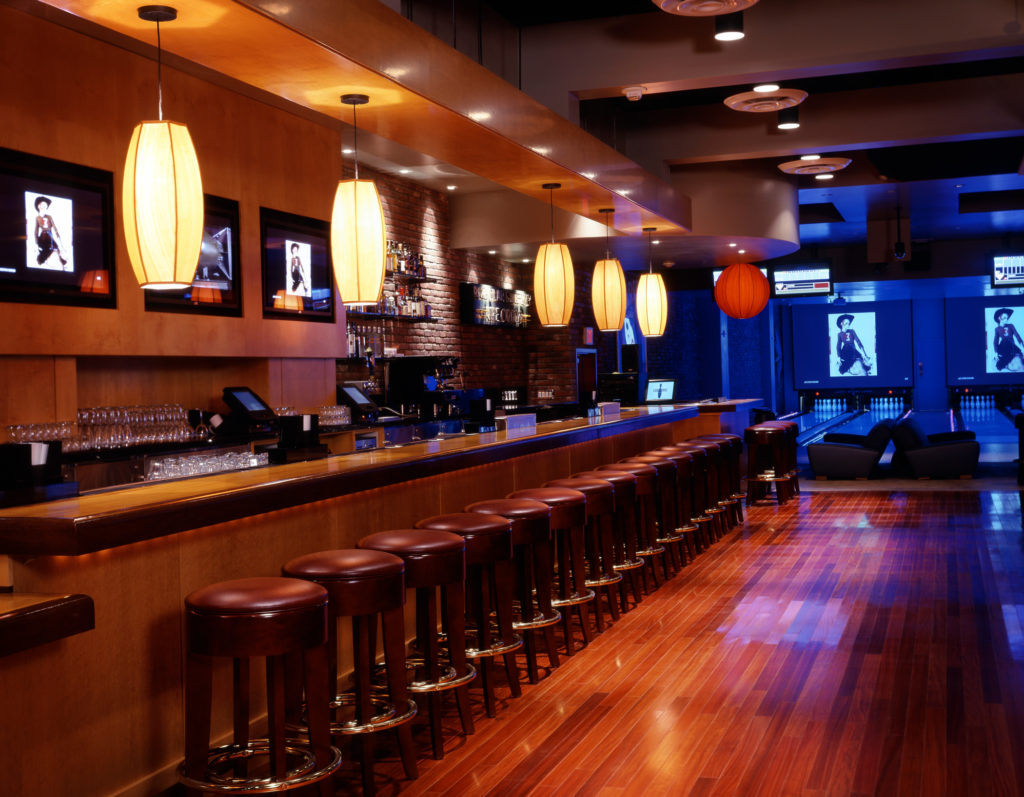
And with a strike of luck that’s more suited for a Hollywood movie than reality, Foster got a phone call while Lucky Strike was under construction from a friend who was representing an old-school bowling center called Hollywood Star Lanes. Open for more than 40 years, it was seized by the city for the Los Angeles Unified School District. It’s also where they filmed the cult classic The Big Lebowski, starring Jeff Bridges.
Much of the set from that 1998 film remained at Hollywood Star Lanes and Foster wrote a check for $25,000 and the demolition contractor gave him a week to get everything out. That included the Hollywood sign and neon blue stars created by the Coen Brothers for the movie. Lane seven was taken out and repurposed as the bar at Lucky Strike. The Dude might have said it really tied the room together.
Even better, Lucky Strike ended up hiring Clay Rand, who’d been the head bowling mechanic at Hollywood Star Lanes for all four decades of its existence. Rand set up trick shots for the movie, Foster said, and was even in a scene pushing a lane cleaner.
The DNA of The Big Lebowski very much became a part of the culture at Lucky Strike. It was cool. It catered to social bowlers who just wanted to have a good time. They offered great music, high-quality food and a bar, and service to the lanes.
“No one had ever seen anything like this before,” Foster said. “Because we’re in Hollywood, we started getting a tremendous amount of celebrities.”
The first buyout they did was for Cher, who held an afterparty at Lucky Strike following the final stop on her Farewell Tour at the Hollywood Bowl in 2005. Foster said they didn’t like to close up shop to the public on Saturday nights, but it was Cher.
In those early days, entertainment media started covering Lucky Strike as the “hot new thing.” From Entertainment Tonight and Access Hollywood to People magazine and Us Weekly – Lucky Strike was everywhere.
TV shows and movies were filmed there. In fact, just prior to his interview with RePlay, Foster learned that Lucky Strike was mentioned in the newly-released Venom: Let There Be Carnage.
They built their brand on creating yet another social, warm and inviting environment for everybody to enjoy.
“It was amazing to me that after a couple years … people knew about Lucky Strike nationwide,” he said. “It enabled us to really fast track brand expansion.”
Today, they have roughly 1,000 employees across 13 venues located in Bellevue, Wash.*; Bethesda, Md.; Boston*; Chicago* (downtown and Wrigleyville), Denver*; Honolulu*; Los Angeles (downtown and Hollywood); Philadelphia; San Francisco; Somerville, Mass.*; and West Nyack, N.Y. (Locations with asterisks include arcades.)
While Foster said there were a lot of “boutique bowling” copycats soon after Lucky Strike opened, he added, “It’s hard to copy heart.”
On the business side of things, Foster said bowling makes up about 25% of revenue at most of the venues. About 40% of business is pre-booked events compared to walk-ups.
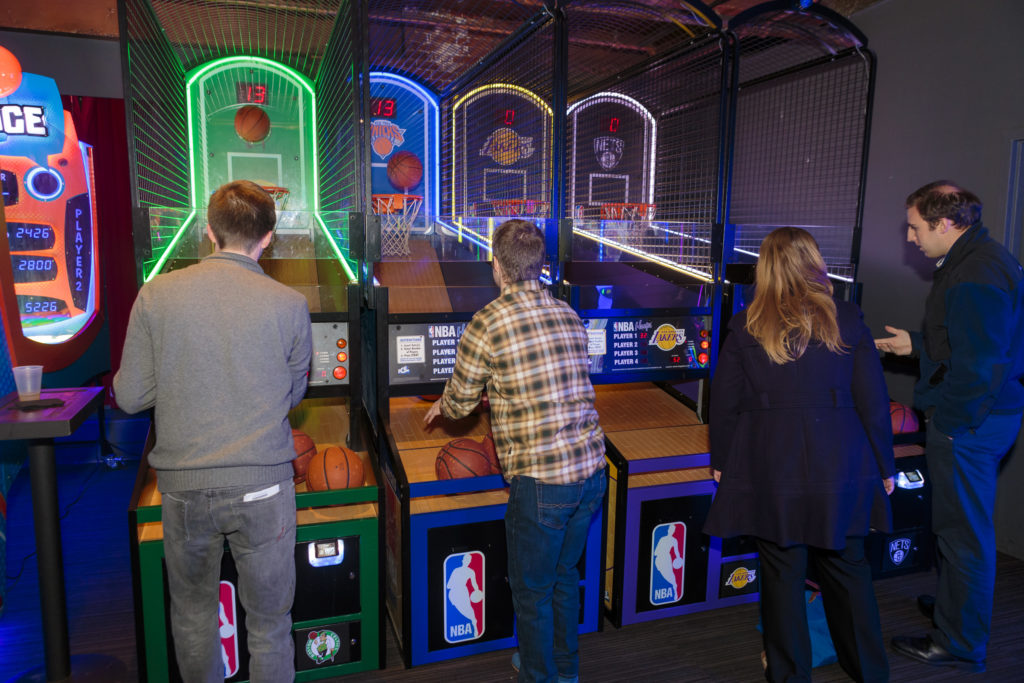
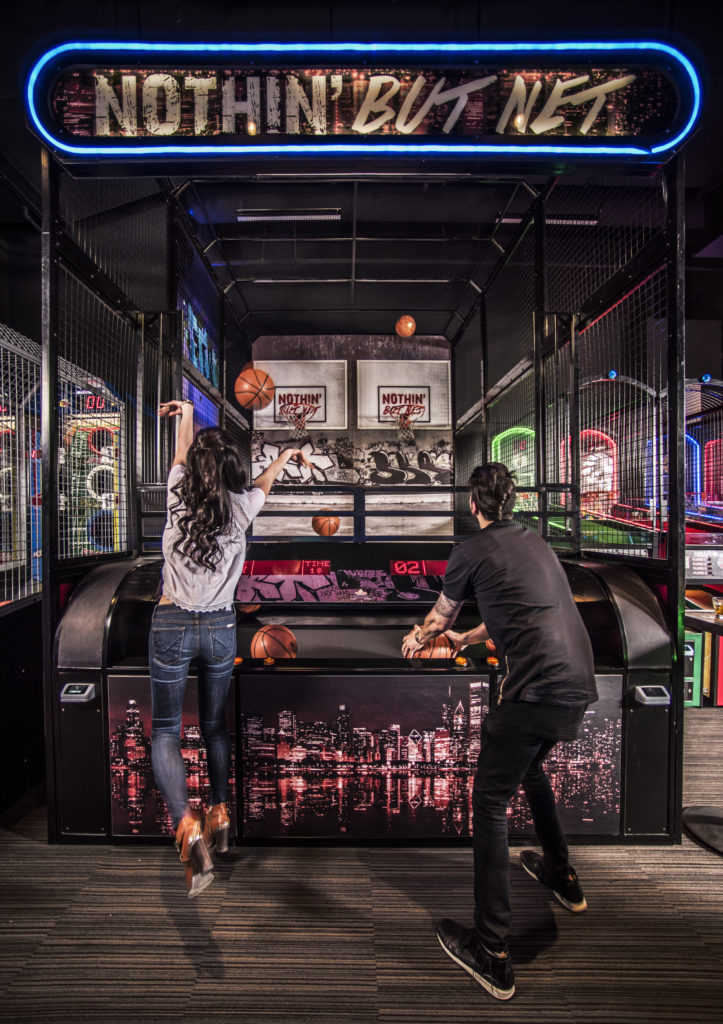 The bowling centers have 12-18 lanes and there are often long lines and waiting lists at some locations, which led to the addition of arcades in seven of the facilities. “An hour is a long time to ask anyone to wait,” Foster said. “We were fortunate to have Jim Bennington, who is an expert in games on staff.”
The bowling centers have 12-18 lanes and there are often long lines and waiting lists at some locations, which led to the addition of arcades in seven of the facilities. “An hour is a long time to ask anyone to wait,” Foster said. “We were fortunate to have Jim Bennington, who is an expert in games on staff.”
Bennington, the company’s Director of Entertainment, said there are about 110 games in each of the locations that have an arcade. “We really try to handcraft each arcade offering,” he said. There’s a 60/40 redemption and merchandiser/ video game mix at the locations.
Arcades were first introduced into the Lucky Strike spectrum of concepts in 2004. Their first F.T.W. (For The Win) arcade was in the Chicago location with about 100 games. Foster said they’re not tearing out lanes or anything like that. It either makes sense to add a large arcade or it doesn’t (or space is allocated for it in new constructions). “You either do it big or not,” he said.
Doing big business, of course, came to a screeching halt in March 2020. Foster recalled having to furlough employees and re-close after reopening several locations during the course of the Covid pandemic.
“We made some decisions to not reopen in a few locations,” he said. “But we’ve gotten through and we’re starting to see opportunities for expansion again. We will be growing again soon.”
As The Dude would say, it’s been strikes and gutters, ups and downs, but Lucky Strike continues to push bowling forward – keeping its guests entertained along the way.
Learn more about the company at www.luckystrikeent.com.
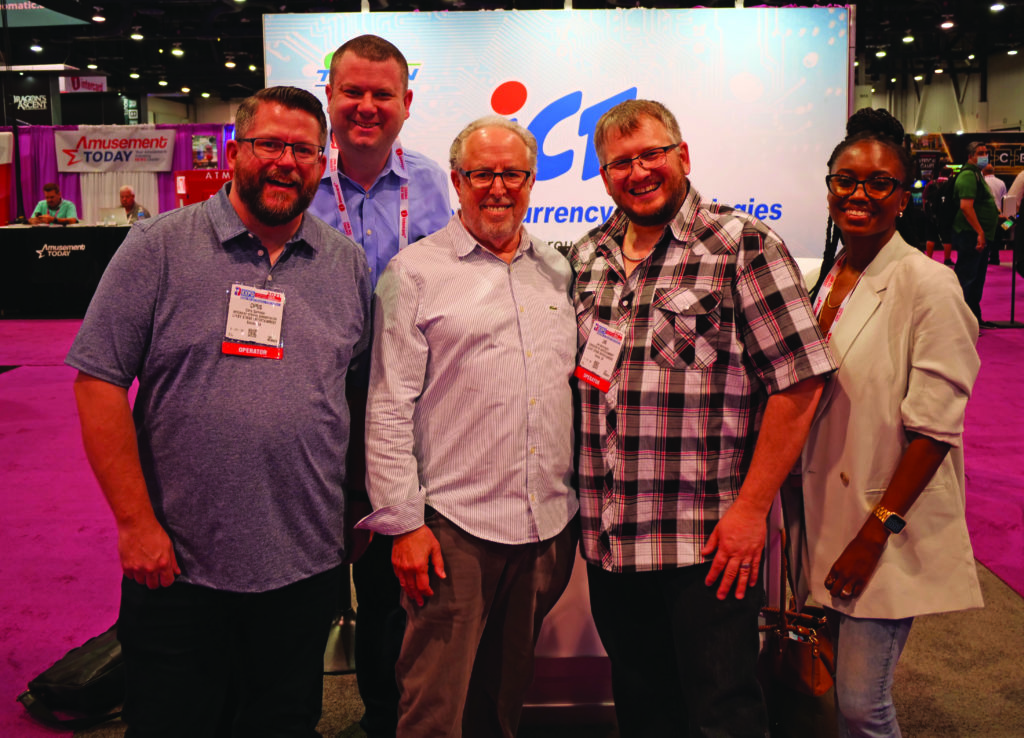
Steven Foster (center) and his team tour the Amusement Expo show floor this year. With him are Chris Snitchler, Ed Heatter, Jim Bennington and Kourtney Dickerson.

